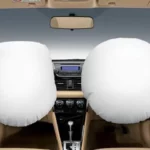When you’re working with your car’s fuel system, it’s essential to understand the role of the fuel pressure regulator. This small device plays a crucial part in maintaining the correct amount of fuel pressure for your engine. Unplugging the fuel pressure regulator can lead to several issues, including unstable engine performance, rough idling, and stalling.
In the following paragraphs, you’ll learn more about the fuel pressure regulator and the consequences of disconnecting it. Being aware of these potential problems can help you keep your vehicle running smoothly and avoid costly engine damage.
What is Fuel Pressure Regulators
Fuel pressure regulators are essential components in your vehicle’s fuel system. They play a crucial role in maintaining the optimal pressure and flow of fuel to your engine. In this section, we’ll discuss how fuel pressure regulators work and why they’re important for keeping your engine running smoothly.
A fuel pressure regulator is an electronic device typically located on your engine’s fuel rail. Its primary function is to regulate the amount of fuel pressure that goes into the fuel injectors according to vacuum signals from the engine. This ensures that your engine receives just the right amount of fuel at precisely the correct pressure, which is essential for optimal engine performance.
In a fuel-injected engine, maintaining the proper fuel pressure is critical to prevent issues such as poor performance, decreased fuel efficiency, and even potential engine damage. The fuel pressure regulator works by constantly adjusting the flow rate and pressure of the fuel entering your engine, based on the engine’s current demand. This is essential to provide your engine with enough fuel during acceleration, cruising, and idling situations.
There are various types of fuel pressure regulators, including mechanical and electronic ones. Mechanical regulators are spring-loaded diaphragms that respond to changes in fuel pressure, while electronic regulators use sensors and a computer-controlled system to make adjustments to maintain the correct pressure. Regardless of the type, a properly functioning fuel pressure regulator ensures that your engine operates efficiently and avoids common issues related to fuel delivery.
Symptoms of Unplugging Fuel Pressure Regulator
When you unplug your fuel pressure regulator, there’s a likelihood of experiencing various issues with your vehicle’s engine. You may notice a drop in fuel pressure, which can lead to the following abnormal symptoms:
A significant symptom is your engine performance being affected. Your vehicle may experience a rough time starting, rough idling, hesitation during acceleration, and a general lack of power. As the fuel pressure becomes unregulated, your engine might also undergo misfires, both during idle and acceleration, causing a sputtering sound.
Another common occurrence is your vehicle’s Check Engine Light turning on. As the vehicle’s fuel system becomes compromised without the proper functioning of a fuel pressure regulator, the engine’s management system will detect an error and trigger the Check Engine Light to inform you of a potential issue.
Rough idling and engine stalling are also common symptoms related to unplugging your fuel pressure regulator. Your engine may randomly stall while driving or when coming to a stop, putting you in a potentially hazardous situation on the road.
Decreased fuel efficiency is another consequence as the engine might not be getting the correct amount of fuel, leading to wastage and poor gas mileage. This might not be apparent immediately but will become more noticeable over time as you find yourself needing to refuel more often.
Consequences of Unplugging Fuel Pressure Regulator
When you unplug your fuel pressure regulator, you might face a number of issues. Some of the most common consequences are related to engine performance and fuel consumption. Let’s discuss these risks in more detail.
Firstly, unplugging the fuel pressure regulator can result in poor performance of your engine. The fuel pressure regulator’s main responsibility is to regulate the amount of fuel pressure that goes into the fuel injectors. If it is disconnected, the fuel pressure may drop, causing unstable engine performance, rough idling, and stalling.
Another consequence of unplugging the fuel pressure regulator is decreased fuel efficiency. An unregulated fuel system can lead to increased fuel consumption. Due to the imbalance in fuel pressure, the engine might consume more fuel to compensate for the unregulated pressure, which affects your vehicle’s fuel efficiency.
In some cases, unplugging the fuel pressure regulator can even cause engine damage. Unregulated fuel pressure can lead to issues such as misfires and fuel leaks. These problems can result in damage to various engine components if left unresolved.
Moreover, there is also a potential risk of fire when you unplug the fuel pressure regulator. A damaged fuel system with leaks can lead to fuel coming into contact with hot engine parts, which might ignite and cause a fire.
Always remember that it’s essential to keep your fuel system in good condition to avoid these risks and maintain optimal engine performance. If you suspect a problem with your fuel pressure regulator, consult a qualified mechanic to diagnose and address the issue properly.
Common Fuel Pressure Regulator Issues and Solutions
Diaphragm Problems
The diaphragm in your fuel pressure regulator can become worn or damaged over time, affecting the performance of your vehicle. If you notice a decline in fuel efficiency or hear a whistling sound when your car is running, check the diaphragm for any worn or damaged areas. Replace it if necessary to maintain optimal fuel performance and avoid further damage to your fuel injectors.
Vacuum Hose Issues
A vacuum hose connecting the fuel pressure regulator to the intake manifold could develop cracks or become loose, compromising fuel pressure. Regularly inspect your vacuum line for any signs of wear or damage, and replace it if needed. Maintaining a healthy vacuum hose will ensure proper pressure regulation and prevent potential consequences to your engine.
Fuel Leak and Rail Problems
A fuel leak can occur if your fuel line or fuel rail develops cracks or becomes damaged. This may cause excess fuel to enter the system, leading to performance issues in your vehicle. Regular inspections of the fuel system will help you identify any leaks early and address them accordingly to avoid further damage.
Regulator Valve Issues
When the valve in your fuel pressure regulator becomes stuck closed, it can cause a range of consequences, including poor engine performance. It’s essential to regularly inspect the valve and perform any necessary maintenance to unstick a fuel pressure regulator. This will ensure proper fuel flow and minimize any performance issues.
Electrical Issues and Control Module
An electrical connector or control module failure in your fuel pressure regulator can lead to difficulties starting your vehicle or erratic engine behavior. Keep an eye on these components and replace them if necessary to maintain optimal performance.
Air-Fuel Mixture and Engine Control Module
An improper air-fuel mixture can have a significant impact on your vehicle’s performance, causing it to run lean or rich. When this happens, it can strain your engine components and lead to poor fuel quality. Make sure to regularly check your engine control module and maintain a healthy fuel system to prevent any issues.
How to Maintain Proper Fuel Pressure
Maintaining proper fuel pressure is key to keeping your vehicle running smoothly and efficiently. In fuel-injected engines, fuel pressure and volume are crucial for efficient engine operation. Neglecting the fuel system can lead to various problems such as an irregular idle, and lack of power on acceleration. Here are some friendly suggestions to help you ensure your vehicle’s fuel system stays in top shape.
First, make sure to routinely inspect your fuel lines and connectors for signs of wear, cracks, or leaks. A small fuel leak can cause a significant drop in fuel pressure, affecting your engine’s performance and emissions. Additionally, these leaks pose a risk for potential fire hazards. Always replace damaged fuel lines and connectors as soon as possible to avoid further issues.
Next, you should consider cleaning your vehicle’s fuel injectors periodically, as they can become clogged with debris and contaminants over time. Clogged fuel injectors can reduce fuel flow, leading to poor performance, increased emissions, and reduced fuel economy. You can use a quality fuel injector cleaner additive to help keep your fuel injectors clean, or consider having a professional fuel injection service performed.
In addition to the fuel injectors, it’s also essential to check your vehicle’s fuel pressure regulator regularly. The fuel pressure regulator plays a crucial role in ensuring the correct amount of gasoline is delivered to the engine under all driving conditions. It will adjust the fuel pressure based on the current demands, such as acceleration or cruising speed.
When you encounter symptoms like engine misfires, poor acceleration, or increased emissions, there’s a chance that your fuel pressure regulator might be the culprit. You can check the regulator’s operation by measuring fuel pressure using a fuel pressure gauge. If you find that the pressure is outside the manufacturer specifications, it could be an issue with the fuel pressure regulator or the fuel pump.
Lastly, preventive measures play an essential role in maintaining proper fuel pressure. Regularly changing your vehicle’s fuel filter will help prevent contaminants from clogging the fuel system and ensure a consistent fuel flow. Furthermore, using high-quality gasoline can help prolong the life of fuel system components and keep your engine running in optimal condition.
Conclusion
Your fuel pressure regulator plays a crucial role in maintaining your engine’s health and performance. Ensuring it’s working properly prevents issues like poor engine performance and decreased fuel efficiency. So, always take care of your fuel system and get any issues fixed promptly for a smooth and friendly driving experience.



